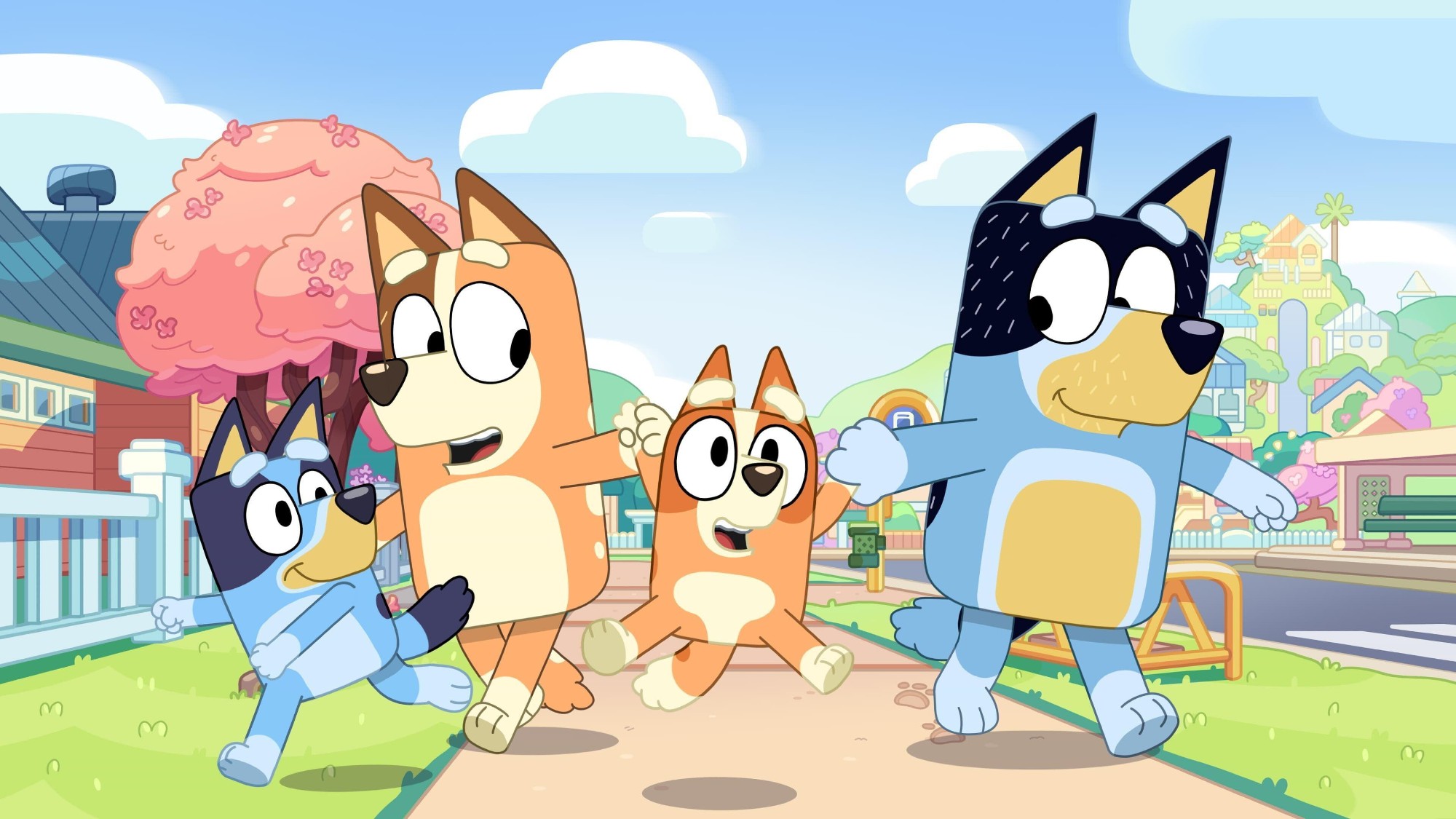Why is Bluey such a cultural phenomenon?
Kids are obsessed — but parents get just as much out of the show, if not more


A free daily email with the biggest news stories of the day – and the best features from TheWeek.com
You are now subscribed
Your newsletter sign-up was successful
Australian animated series "Bluey" premiered in 2018 and has since captured the hearts and minds of children, parents and childless adults alike. In 2023, it was the "second-most popular streaming show in the U.S., where it was watched for 731 million hours," said Vox. Following the domestic lives of a canine nuclear family, the program treats its young audience members as sophisticated beings who can handle emotional complexity. But "Bluey" made headlines last week because its season three finale, an unusually long and poignant episode titled "The Sign," made scores of adult viewers weep, too.
The background of 'Bluey' mania
"Bluey" is centered around a family of four blue heeler dogs: Bandit and Chilli are the parents, Bingo and Bluey are sisters, and the titular Bluey is 6 years old when the series begins. Plot points are dedicated to the simplest joys and woes of daily life: sibling squabbles, imaginary play and raising children from a parent's perspective. "Bluey" is just as much about Bandit and Chilli's experience as it is about their kids, and both parents take great pains to validate the feelings of their little girls. Bandit, in particular, is always indulging their imaginative desires. He emerges as a "shining TV example of a competent, involved parent, forgoing the bumbling-dad trope you can see in so many animated series (Homer Simpson, Peppa Pig's Daddy Pig)," said The Cut. The series is also unafraid to confront the difficulties of parenting. "That's the audacity of 'Bluey,'" said The Atlantic. "It trusts that its young audience will be able to understand stories that are about the foibles and insecurities of parents too."
Many childless adults are likewise riding the "Bluey" train, similar to the community of adult male "bronies" who bonded over their shared love of "My Little Pony" a decade ago. The broad appeal of "Bluey" is that it's low-stakes, gentle and funny, depicting the childhood most of us wanted, but few got to have. "The series crystallizes the experience of something that seems so amorphous and complicated: being a family," said The Daily Beast.
The Week
Escape your echo chamber. Get the facts behind the news, plus analysis from multiple perspectives.

Sign up for The Week's Free Newsletters
From our morning news briefing to a weekly Good News Newsletter, get the best of The Week delivered directly to your inbox.
From our morning news briefing to a weekly Good News Newsletter, get the best of The Week delivered directly to your inbox.
The new episode that went viral
Typical "Bluey" episodes are seven minutes long, but the season three finale released on April 14 was a daring twenty-eight minutes. In "The Sign," Bandit decides to take a job in another city for the benefit of his family, which means they must come to terms with leaving their home. The kids are having a hard time with the impending transition, and secretly, the parents are too — but Bandit and Chilli are putting on a brave face, as adults are wont to do.
After the episode's release, a seemingly endless stream of adults posted on social media about how hard it hit them. "The last time he cried was at the birth of our baby," said a viewer named Brittany Bailey, posting alongside a photo of her husband crying while watching the episode. "'Bluey' is so much more than a kids cartoon."
How children's programming could be impacted
While a lot of entertainment for kids is centered around magic, fantasy or superheroes, "Bluey" is about the mundane. "The hardest thing to do is get through a day. 'Bluey,' somehow, captures that," said The Daily Beast. The series focuses on the real-life magic of make-believe and curiosity, as Bluey and Bingo invent elaborate games for both their parents and friends to play. The series also defies the predictable and comforting rhythm that many other kids' programs fall into. Instead, each episode is unique, promising only that Bluey or Bingo will play some game, and that it will inevitably result in a life lesson learned or a deeper meaning gleaned.
"There is a history of major leaps in children's TV," said critic Kathryn VanArendonk for Vulture. "The radical innovation of 'Mister Rogers' Neighborhood' was to see children as people," while "Bluey" is a "triumph of good-natured naturalism, a clarion understanding of what play really feels like and its importance in childhood." The show achieves an "unusual feat for children's programming: a true double-vision viewing experience for parents and children watching together," she adds. There is even evidence that the show has actually changed the way people parent their kids — arguably for the better.
A free daily email with the biggest news stories of the day – and the best features from TheWeek.com
If "Bluey" encourages parents to tap into their dormant senses of wonder, it may also make a larger impact on future children's programming. Perhaps it will set a new standard, proving that shows for kids can succeed with emotional nuance, real-life storylines and adult perspectives.
Anya Jaremko-Greenwold has worked as a story editor at The Week since 2024. She previously worked at FLOOD Magazine, Woman's World, First for Women, DGO Magazine and BOMB Magazine. Anya's culture writing has appeared in The Atlantic, Jezebel, Vice and the Los Angeles Review of Books, among others.
